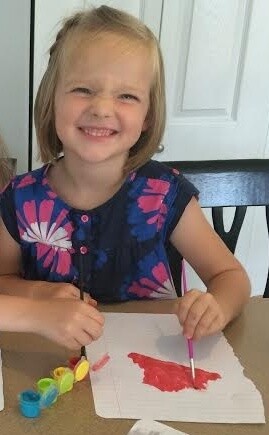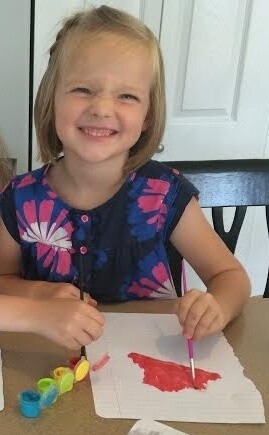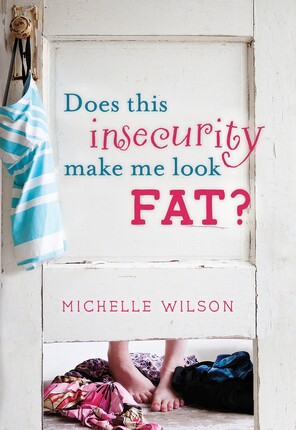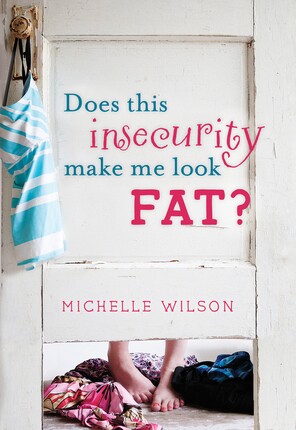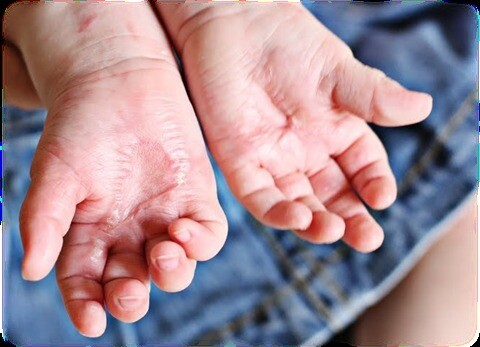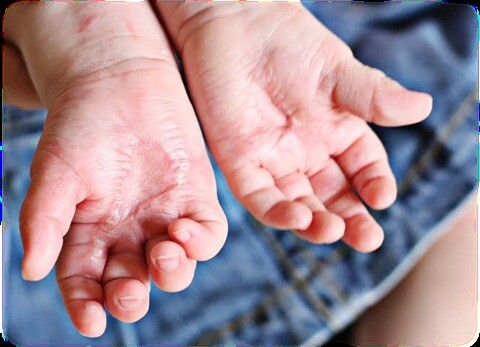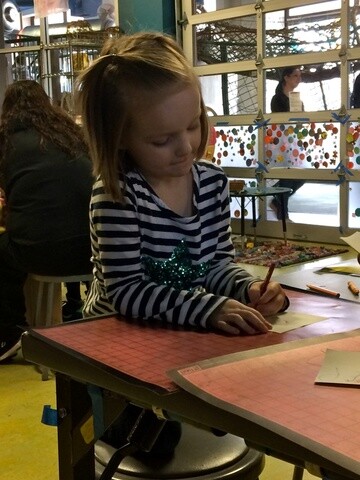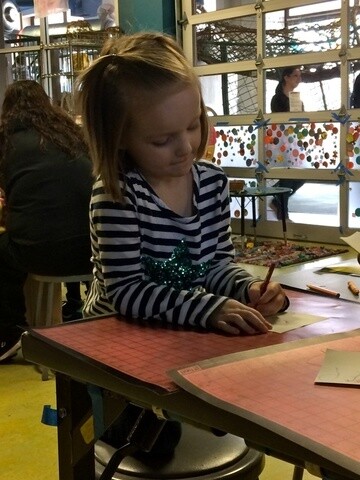When my friend's daughter burned her hands on a gas fireplace, her story of physical healing turned out to be a powerful parable about my own spiritual healing.
Do you ever wonder why we must endure some of the burdens we are asked to bear?
I used to ask, “Why?” until a young mother’s example answered the question for me.
One Sunday, I was walking down the church hallway to teach my class of 5-year-olds when a sister in the hall stopped me. She told me that Lucy, the sweet, almost 1-year-old daughter of a friend of mine, had been taken to the hospital. No one knew exactly what had happened, only that Lucy had been hurt.
By the end of our Sunday meetings, most of the congregation had been made aware of the situation. Meals were scheduled to be taken to the home. Care for Lucy’s older brother had been arranged. Prayers had already been whispered. Some tears had already been shed.
Through phone calls and visits, we learned what had happened. Lucy had been playing on the floor as her family had been getting ready for church. They had recently moved into a new home, and Lucy was exploring the unfamiliar family room. She was just beginning to walk and would often hold on to furniture and other things to help herself stand. This particular morning, Lucy crawled over to the gas fireplace and pulled herself to a standing position, leaning her full weight on her small hands as they pressed into the hot glass. The heat was intense, but Lucy was too young to realize that the palms of her hands were burning. She simply stood there, leaning against the hot glass pane for several seconds until her mother saw her and ran across the room.
Lucy’s parents immediately sought medical care. It was a long day of tears, doctors, praying, and waiting.
After a few days in the hospital, Lucy was able to come home, and my husband and I then paid the family a visit. Lucy was already in bed, and we sat with her parents, Matt and Stephanie, who were understandably exhausted. As we listened to them retell their experience, I was moved by their faith in the face of this adversity. My heart ached when they told me of the pain and suffering Lucy had experienced, and I thought to myself how grateful I was that the ordeal was over—Lucy was home now, safe and warm in bed.
Then her mother told me about Lucy’s recovery process.
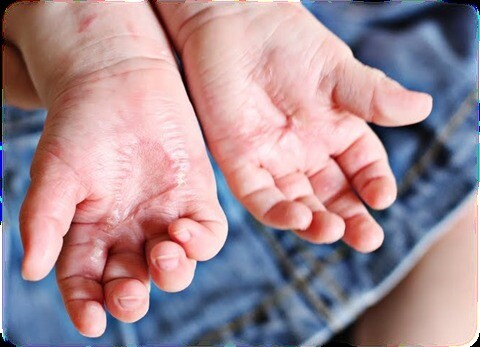
The doctors had performed skin grafts to save her hands. Then, to protect them as they healed, her hands and arms were wrapped up to the elbows. During the healing process, the palms of Lucy’s hands would need to be stretched to prevent the skin from healing too tightly. Stephanie smiled through tired, moist eyes as she explained to my husband and me that this stretching had to be done not once or twice a day but every hour.
“Does it hurt?” I asked.
The answer was a tearful “Yes, but it’s the only way for her hands to heal correctly.” If the palms weren’t stretched, the skin would not heal with enough flexibility, and Lucy would not be able to open her hands fully as she grew older.
Oh, this poor little girl! was my first thought. To endure not only such initial pain and trauma but to have to experience pain over and over again—how heartbreaking!
The following Sunday, I saw Stephanie and Lucy in the restroom at church. It was time for the hourly stretching of Lucy’s hands. I watched as Stephanie set her smiling little girl on the counter and talk softly to her. Then she gently took Lucy’s hand. Lucy recoiled and began to whimper, knowing what was about to happen. Calmly and gently, Stephanie bent Lucy’s fingers back to stretch the healing skin. Lucy cried.
Stephanie spoke the tender words of a loving parent: “I know it hurts. I’m sorry. We are almost finished. You are doing so well. Mommy’s right here. I love you.” I turned my head and looked at the floor, feeling that I was invading a private moment between mother and daughter. I was also trying to hide my tears. I was watching a painful, yet tender exchange between child and parent. But it struck me that I was also witnessing a profound representation of the relationship between me and my Heavenly Parent.
There have been many times in my life when I have struggled, when I have felt tired and stretched. My prayers in my younger days had often included this plea: “Heavenly Father, how can you let this happen to me?” It was difficult for me to understand how feeling so much pain could be for my benefit. I thought that if God loved me, He would save me from such pain. But most of the time that did not happen.
Little Lucy hurt herself—even though she was not fully aware of what she was doing. She had loving parents who helped to her heal. Even though it hurt, they knew that stretching her hands would lead to full use of them in the future. Temporary pain now would lead to full recovery later. Her parents knew this, so they stretched her hands for her benefit, even though it broke their hearts to do it. Out of their deep love for their daughter and their understanding of how necessary the stretching was, they not only allowed Lucy to hurt but they willingly and lovingly acted as the instigators of the pain. It took great courage and emotional strength on their part to administer this therapy, but they did what was hard now in order to help Lucy in the long run.
It might have been easier for them to say, “No, we don’t want Lucy to hurt anymore. She’s been through enough. We want to protect her. We will not stretch her hands.” But they were looking at the situation through the eyes of loving parents. They were looking at and loving not just the little Lucy but also the Lucy of the future: Lucy the future piano player, Lucy the future mother, Lucy the future artist, Lucy with full use of her hands. They understood the difficult truth that Lucy would have to endure pain now to reach a greater potential later.
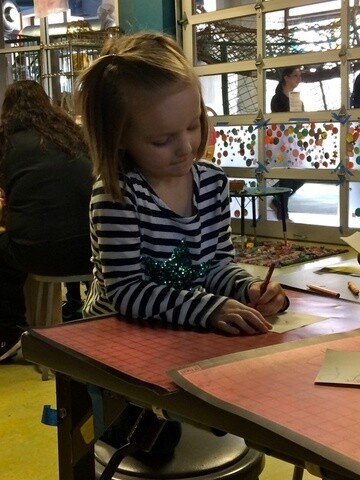
We are told that the purpose of our mortal existence is that we might have joy (see 2 Nephi 2:25), but our lives in mortality are also punctuated with all manner of trials and tribulations. During these difficult times, we might feel stretched; we might feel pain and even suffering. We might cry as Alma did, when he was bound, imprisoned, and beaten, “How long shall we suffer these great afflictions, O Lord?” (see Alma 14:26).
When we feel stretched and are suffering, we might find ourselves wishing that our Heavenly Father would say, “No, I don’t want you to hurt anymore. You’ve been through enough. I want to protect you. I will not stretch you anymore.” If that wish were granted, we would momentarily be free from pain or discomfort. We might feel relief and happiness. It might seem to be an easier way to end the trial—but we would not grow.
Alma had faith, even in the midst of his afflictions. His plea to know how long the suffering would last was followed by, “O Lord, give us strength according to our faith which is in Christ unto deliverance” (Alma 14:26). Alma understood that faith was imperative in the face of adversity. He knew that the Lord had a purpose and a plan for him, and he looked to God for guidance and help.
Our Father in Heaven loves us dearly and perfectly. He does not find any joy in our suffering. But He is not looking at and loving us just for the present. He is also looking at and loving our future selves. He knows that sometimes healing hurts. He knows that for us to grow, we need to be stretched. He knows that for us to become like Jesus Christ, we need to change, and sometimes change comes only through adversity.
As a loving parent himself, Alma later testified of this principle to his son. He said, “I have been supported under trials and troubles of every kind, yea, and all manner of afflictions; . . . and I do put my trust in him, and he will still deliver me” (Alma 36:27).
What a powerful example Lucy’s family was, to me and to the entire congregation, of the influence of the love of good parents—and our Heavenly Parent. It reminds me there is purpose to my suffering. It also helps me to understand that my Father in Heaven allows me to suffer because He loves me—and that it is not an easy thing for Him to allow. It gives me hope that I can be healed, that pain is only temporary. And it helps me know that my loving Heavenly Father is there for me throughout the trial and the healing.
I am reminded of the gentle words that Lucy heard from her loving mother during the painful stretching: “I know it hurts. I’m sorry. We are almost finished. You are doing so well. Mommy’s right here. I love you. You will be okay.”
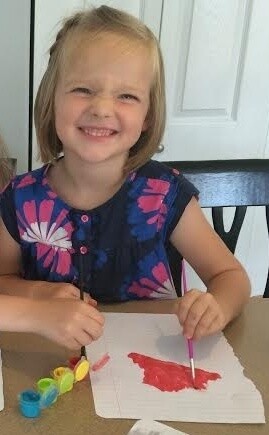
Now, when I am hurting, feeling stretched, and growing, I imagine those words as an earthly echo of my Heavenly Father’s loving message to me: “I know it hurts. I’m sorry. We are almost finished. You are doing so well. I am right here, and I love you. You will be okay.” We know we are loved not because our life is easy but because He is there to help us when it is hard.
That’s the power of my favorite word: perspective.
Perspective helps us find solace in the truth that God will not give us more than we can handle with His help. Perspective helps us understand that even though we see only a piece of the big picture we can still have faith in the One who created it. Perspective assures us that we are not alone in our trials and enables us to find the purpose in our lives and in our pain.
Photo of Lucy’s hands courtesy of Kimberly Robinson. All other photos courtesy of Stephanie Berglind
Read more from Michelle Wilson in her book Does This Insecurity Make Me Look Fat?, available at Deseret Book stores and deseretbook.com.
